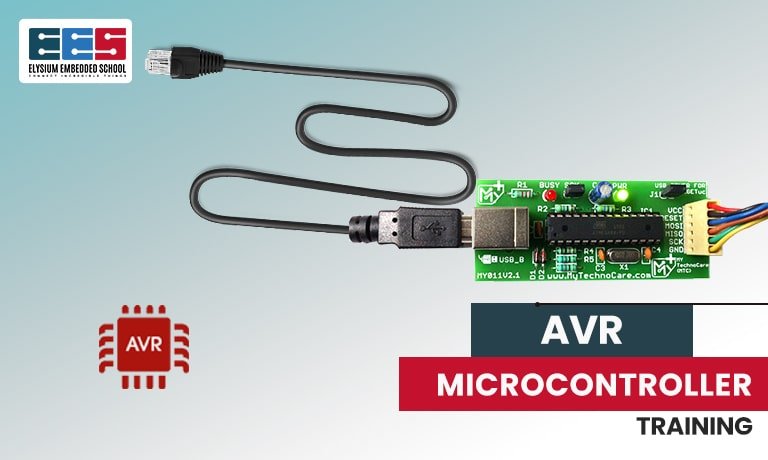AVR Programming

Introduction
In AVR Programming, Automatic Voltage Regulator (AVR) was one of the first microcontroller families to use on-chip flash memory for program storage, as opposed to one-time programmable ROM, EPROM, or EEPROM used by further microcontroller programming at the time. In reality, AVR microcontrollers catch several applications as embedded systems.
Learn how to programming the AVR microcontroller. As well as, these are modified Harvard architecture 8-bit RISC single-chip microcontrollers. They are particularly common in hobbyist and educational embedded applications, promoted by their presence in many of the Arduino line of open hardware development boards. The purpose of the (AVR) is to keep constant voltage and power line conditioning to the equipment load under a wide variety of conditions, even when the utility input voltage, frequency or system load vary widely.
EES, the embedded training institute provides AVR training, and certification course with experienced members help to gain your developing skills with qualified trainers.
What You Will Learn

Understand microcontroller and evolution in its technology.
Get knowledge on ATMEL ATmega8515/ATmega32 in detail.
Able to write a program using simulators and assemblers.
To handle various projects based on the external interface.
Know about advanced Input-Output concepts.
Gain experience with the latest trends on a microcontroller.
Career Opportunities Associated with AVR Microcontroller

- AVR microcontroller training provides knowledge & skills about how to work on Advanced Virtual RISC or AVR microcontroller
- The individuals learn about Atmel’s AVR microcontroller technology, architecture, and pin diagram, assembly language as well as interrupts and timers
- The main objective of this course is to give strong knowledge of AVR Microcontroller with their programming so that student can design real time projects on Emebdded Systems
- Industry,manufacturing or production unit Research or development field, embedded engineers are required in almost every domain of electronic
Course Outline

Months Course
- Introduction
- Introduction to AVR architecture
- Embedded C language
- Peripheral Interfacings
- Communication Protocols and Converters interfacings
- Advance display modules
- Software Handling
Pre-Requirement Skills

Basic C





